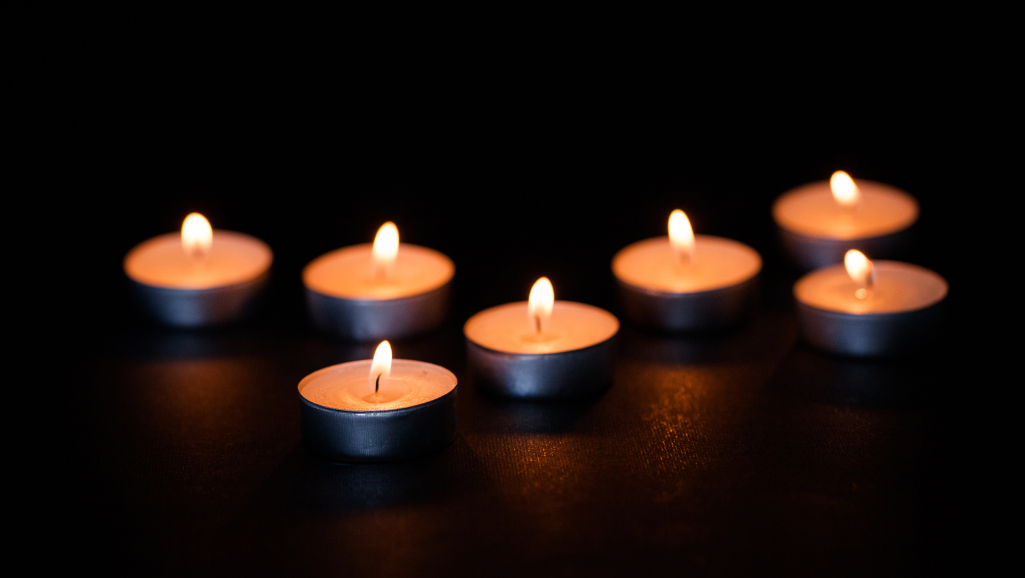Modern life moves fast, and many people find themselves drowning in stress. Studies show 73% of adults battle chronic overwhelm, affecting both mental health and physical well-being. Left unchecked, prolonged stress raises heart disease risk by 58%—but there’s hope.
Neuroscience and psychology offer proven methods to regain balance. Simple techniques like deep breathing, mindfulness, and journaling can bring quick relief. Others find peace by setting boundaries or breaking tasks into smaller steps.
Peace is possible. Whether it’s a walk outside or learning to say “no,” small changes create lasting results. This guide explores science-backed strategies to help manage stress and reclaim calm.
Key Takeaways
I Feel Overwhelmed All the Time.
- Chronic stress affects 73% of adults and increases health risks.
- Mindfulness and breathing exercises offer immediate relief.
- Setting boundaries helps protect mental well-being.
- Breaking tasks into smaller steps reduces anxiety.
- Long-term lifestyle changes support lasting peace.
Understanding Why You Feel Overwhelmed All the Time
Stress isn’t just a feeling—it’s a biological response with deep roots. When threats arise, the sympathetic nervous system triggers fight-or-flight mode. Heart rates spike, muscles tense, and the body prepares for survival. But today’s dangers aren’t predators; they’re deadlines, notifications, and endless demands.
The Science Behind Chronic Stress
Cortisol, the primary stress hormone, floods the system during prolonged pressure. Research shows it damages the hippocampus, the brain region tied to memory and emotional regulation. Neuroplasticity reveals how repeated stress reshapes neural pathways, making overwhelm a default state.
“63% of workers report email overload as a top stressor, with heart rates spiking 40% during back-to-back Zoom meetings.”
How Modern Life Fuels Overwhelm
Ancestors faced acute threats—like escaping lions. Today’s stressors are chronic: inboxes, societal unrest, and climate worries. Unlike short-term dangers, these linger, keeping cortisol levels high. Hustle culture worsens it, glorifying burnout as a badge of honor.
Environmental factors compound the issue. Political instability and global crises create background anxiety. The brain, wired for occasional danger, struggles with constant alerts. Without boundaries, health suffers—mentally and physically.
Recognizing these triggers is step one. Step two? Taking back control—starting now.
Signs You’re Overwhelmed (And Might Not Realize It)
Stress creeps in silently, often disguised as everyday struggles. Many dismiss early symptoms, mistaking them for fatigue or a busy schedule. But your body and mind send clear signals when stress takes hold.
Physical Symptoms: When Your Body Sounds the Alarm
Muscle tension affects 89% of stressed individuals, per research. Racing hearts, headaches, and fatigue are common red flags. Chronic stress weakens immunity, leading to frequent illnesses.
Digestive issues like nausea or bloating often accompany high cortisol levels. Even minor tasks drain energy, leaving you exhausted by midday.
Emotional Red Flags: The Hidden Toll
Feelings of irritability or hopelessness signal emotional overload. Withdrawal—like canceling plans—occurs in 73% of cases. Mood swings or crying spells may feel uncontrollable.
“A teacher once blamed ‘laziness’ for her exhaustion—only to discover chronic stress was the real culprit.”
Cognitive Warning Signs: When Your Mind Falters
Brain fog reduces prefrontal cortex activity by 34%, impairing focus. Decision paralysis makes even coffee-making feel like calculus. Intrusive thoughts or forgetfulness often follow sleepless nights.
If multitasking suddenly feels impossible, your mind may be begging for a break.
Common Triggers That Make You Feel Overwhelmed
Certain situations act like kindling, sparking stress before it blazes into full overwhelm. Identifying these triggers—whether work demands or family obligations—helps dismantle them proactively.
Work and Relationship Stressors
Work environments play a huge role. Open offices spike stress markers by 27%, while 68% cite caregiving as a top trigger. Financial strain triples anxiety risk, per studies.
Relationship conflicts fuel 45% of emotional overload. Balancing partner needs, parenting, and friendships stretches energy thin. As Liam Bob shared, mastering family and personal goals requires clear boundaries.
Life Transitions and Health Concerns
Major life changes—like moving or starting a new job—disrupt routines. New parents report 82% overwhelm rates in their first year.
Health struggles compound stress. Managing chronic illness drains mental reserves, with 28% citing it as a primary trigger. Even minor events, like annual check-ups, can ignite anxiety.
“Millennials face unique pressures—student debt, gig economies, and delayed milestones keep many in permanent transition.”
Recognizing these patterns is the first step toward reclaiming calm. Next? Tailored strategies to extinguish each trigger.
How Overwhelm Impacts Your Mental and Physical Health
The toll of chronic stress extends far beyond daily frustrations, embedding itself in both mind and body. Research shows it doubles depression risk and triggers a 40% spike in autoimmune flare-ups. Left unmanaged, the damage compounds silently.
Cortisol, the primary stress hormone, reduces REM sleep by 53%. This fuels a vicious cycle: anxiety breeds insomnia, which deepens depressive symptoms. Studies trace this domino effect in 5-year patient outcomes.
“Chronic stress shrinks the prefrontal cortex—the brain’s command center for focus and decision-making.”
Cardiovascular systems suffer too. Persistent stress accelerates hypertension development, with 34% higher heart disease risk. Immune defenses weaken, making illnesses 3x more likely.
Workplaces pay a steep price—$187 billion annually in lost productivity. Yet preventative care reverses trends. Simple steps like prioritizing sleep or mindfulness can reset biological alarms.
Your health isn’t just a casualty; it’s a battleground. But with awareness and action, resilience wins.
Immediate Strategies to Calm Overwhelming Feelings
Powerful techniques exist to reset your nervous system in minutes. When anxiety surges, these science-backed strategies anchor you in the present. They work anywhere—from crowded trains to tense meetings.
The 5-4-3-2-1 Grounding Technique
This sensory protocol cuts anxiety by 47% in under 3 minutes. Engage each sense to interrupt stress cycles:
- 5 things you see (e.g., a pen, cloud, or chair)
- 4 textures you feel (fabric, desk, your breath)
- 3 sounds around you (traffic, birds, keyboard taps)
- 2 scents nearby (coffee, soap, air)
- 1 taste (gum, water, or lip balm)
It redirects focus from racing thoughts to tangible details. Perfect for panic attacks or pre-presentation jitters.
Breathwork for Instant Stress Relief
Navy SEALs use box breathing to stay calm under fire. Inhale for 4 counts, hold for 4, exhale for 4, pause for 4. Repeat 4 cycles. Studies show it lowers blood pressure 14%.
For faster relief, try the physiological sigh: two quick inhales through the nose, then a long exhale. This triggers the vagus nerve, slowing heart rates within 30 seconds.
“Apps like Breathwrk sync with wearables to personalize rhythms—proving ancient breathing practices work in modern chaos.”
Pair these with mindfulness apps (Headspace, Calm) for guided sessions. Even chewing gum reduces cortisol—a quick help for stressful tasks.
Long-Term Coping Mechanisms for Chronic Overwhelm
True resilience against chronic stress is built daily, not overnight. While quick fixes help in moments of crisis, lasting peace requires intentional habits that protect mental and physical well-being. These strategies transform survival into sustainable thriving.
Building a Sustainable Self-Care Routine
Self-care isn’t indulgence—it’s maintenance. Start with an energy audit: track daily highs and lows for a week. Align demanding tasks with peak energy times, often mid-morning or post-exercise.
Try habit-stacking: pair new rituals with existing ones. Drink tea while journaling, or stretch during conference calls. Small, consistent actions compound into resilience.
- Circadian rhythm sync: Exposure to sunlight within 30 minutes of waking boosts focus.
- Digital detox: Designate “screen-free” hours to reduce mental clutter.
- Community care: Join groups (book clubs, running teams) for accountability and support.
Setting Boundaries and Mastering the Art of “No”
Research shows declining non-essential requests cuts obligations by 31%. Use scripts like:
“I’d love to help, but my plate is full this month.”
For family, try: “Let me check my schedule and get back to you.” Delay responses to avoid impulsive yeses. Protect your energy like a finite resource—because it is.
Time-Management Hacks for a Lighter Load
Time-blocking improves productivity by 22%. Assign themes to days (e.g., Mondays for deep work, Fridays for admin). Use the Eisenhower Matrix:
- Urgent + Important: Do immediately (deadlines, crises).
- Not Urgent + Important: Schedule (planning, exercise).
- Urgent + Not Important: Delegate (emails, meetings).
- Not Urgent + Not Important: Eliminate (mindless scrolling).
Social support halves recovery time—outsource tasks when possible. A neighbor might grocery-shop if you babysit in return.
When to Seek Professional Help for Feeling Overwhelmed
The ultimate act of self-care is knowing when to ask for support. Therapy shows 68% improvement in coping skills—proof that expert help creates breakthroughs.
- Two+ weeks of impaired daily functioning
- Physical symptoms like chronic insomnia or headaches
- Using substances to escape emotional pain
- Withdrawal from relationships lasting over 6 weeks
“Medication combined with therapy improves outcomes by 83% for anxiety disorders.” – American Psychological Association
Three therapy types dominate modern treatment:
- CBT (Cognitive Behavioral Therapy): Rewires thought patterns in 12-20 sessions
- DBT (Dialectical Behavior Therapy): Combines mindfulness with emotional regulation
- EMDR: Processes traumatic memories through bilateral stimulation
Navigating insurance? Psychology Today’s therapist directory filters by plan. For affordable options, Open Path Collective offers sessions at $30-$60.
Teletherapy platforms bring support home:
| Platform | Best For |
|---|---|
| BetterHelp | General anxiety disorders |
| Talkspace | Depression with medication management |
Cultural stigma still prevents 43% from seeking help. Yet pioneers like author Maya Angelou proved therapy fuels creativity. Her journey from panic attacks to literary fame shows health investments pay lifelong dividends.
If dialing 988 feels daunting, start smaller. Many therapists offer free 15-minute consultations—your first step toward reclaiming peace.
Conclusion: Reclaiming Peace in a Stressful World
Every sunrise offers a chance to reset and rebuild. Small steps—like a 30-day mindfulness challenge—transform chaos into calm. Journal one win daily. Water a plant. Breathe deeply. Progress compounds.
Your calm is waiting. Communities and tools exist, but the truest care starts within. You contain multitudes—strength, creativity, and resilience woven into your story.
Share your journey. Others are learning too. Together, mental health becomes a shared priority, not a solo struggle.
Today’s breath is a new beginning. The next right step? Yours to take.











